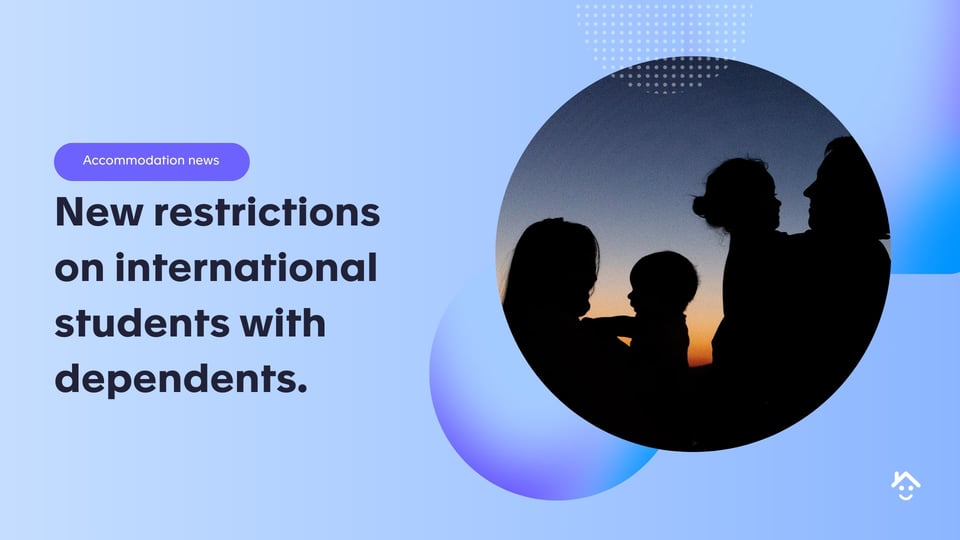Immigration is at an all-time high in the UK, and the government has made it clear that bringing down the net migration total is a priority.
This concern shows implications for international students as a new policy has been jointly announced by the Home Office and the Department of Education concerning student dependants.
As of January 2024, international students will not be permitted to bring family members to the UK with them unless they are enrolled in a postgraduate research course (research-based PhDs and research-based master’s programmes). This means that international students in postgraduate courses that are not research designated will not be allowed to bring in dependants.
Dependants include children under the age of 18, spouses or civil partners, and elderly parents who need long-term care.
The government ensures that these “proposals to the student visa route allow the government to continue to meet its International Education Strategy commitments, while making a tangible contribution to reducing net migration sustainable levels.”
Similarly, they claim that they will continue to work with the higher education sector to explore alternative options to ensure the “brightest and best students” can continue to bring dependants to the UK while studying at world-leading universities.
Two main source markets will be impacted by the new ban on international dependants.
Undergraduate international students will not be allowed to bring dependants to the UK, but they are not the only group affected. Students coming to the UK for one-year master’s programmes will also feel the changes.
The one-year master’s route is a popular one for Indian and Nigerian students, which are two demographics that are driving the growth of international enrolments in the UK.
In 2022, Nigerian nationals accounted for the highest increase in the number of dependants and the largest increase in sponsored study grants, making them the third largest nationality.
As a result, some critics warn that some universities will face serious shortfalls next year, not just across Nigerian students, but across other areas too.
Students must stay in the student route until they have successfully completed their programme.
Another change: International students will no longer be able to obtain a Skilled Worker Visa until after they have completed their studies.
The rule is intended to discourage international applicants from choosing the UK solely because they want to work there, rather than study.
No changes are to be made to the graduate visa route.
Previous discussions saw potential changes to the graduate visa which currently allows students to stay in the UK for up to two years after successfully completing their course.
Home Secretary, Suella Braverman, had attempted to get cabinet approval to reform the graduate visa route. Braverman wanted to cut the period from two years to just six months.
According to The Guardian, however, the proposal was “killed off” by Keegan and the government has ensured that no changes to the graduate visa are currently in the works.
Not everyone agrees with the decision to deter international students from applying to study in the UK.
Diana Beech, chief executive of London Higher, told University World News: “The only people set to benefit from the decision to prohibit international masters students from travelling to the UK with their dependants are those in competing major global economies, who will now be rubbing their hands at the prospect of welcoming the talented and ambitious individuals that the UK has effectively turned away.
Evidence shows this decision will also disproportionately affect students from countries such as India and Nigeria, both priority countries in the International Education Strategy, as well as female students, who are more likely to bring dependants with them. For many universities in London, this will mean a significant reduction in annual intake.”
What does this mean for the rental market in the UK?
The smaller intake of international families means that the HMO market is likely to return to something resembling “normality.”
Families and dependants of international students had unbalanced some of the local markets and taken the HMO stock off the market for students who don’t have dependents.
A smaller intake of international students with dependants will likely leave more houses on the market for students struggling to find accommodation.
You can read more about the positive economic impact international students have on the UK economy here.



